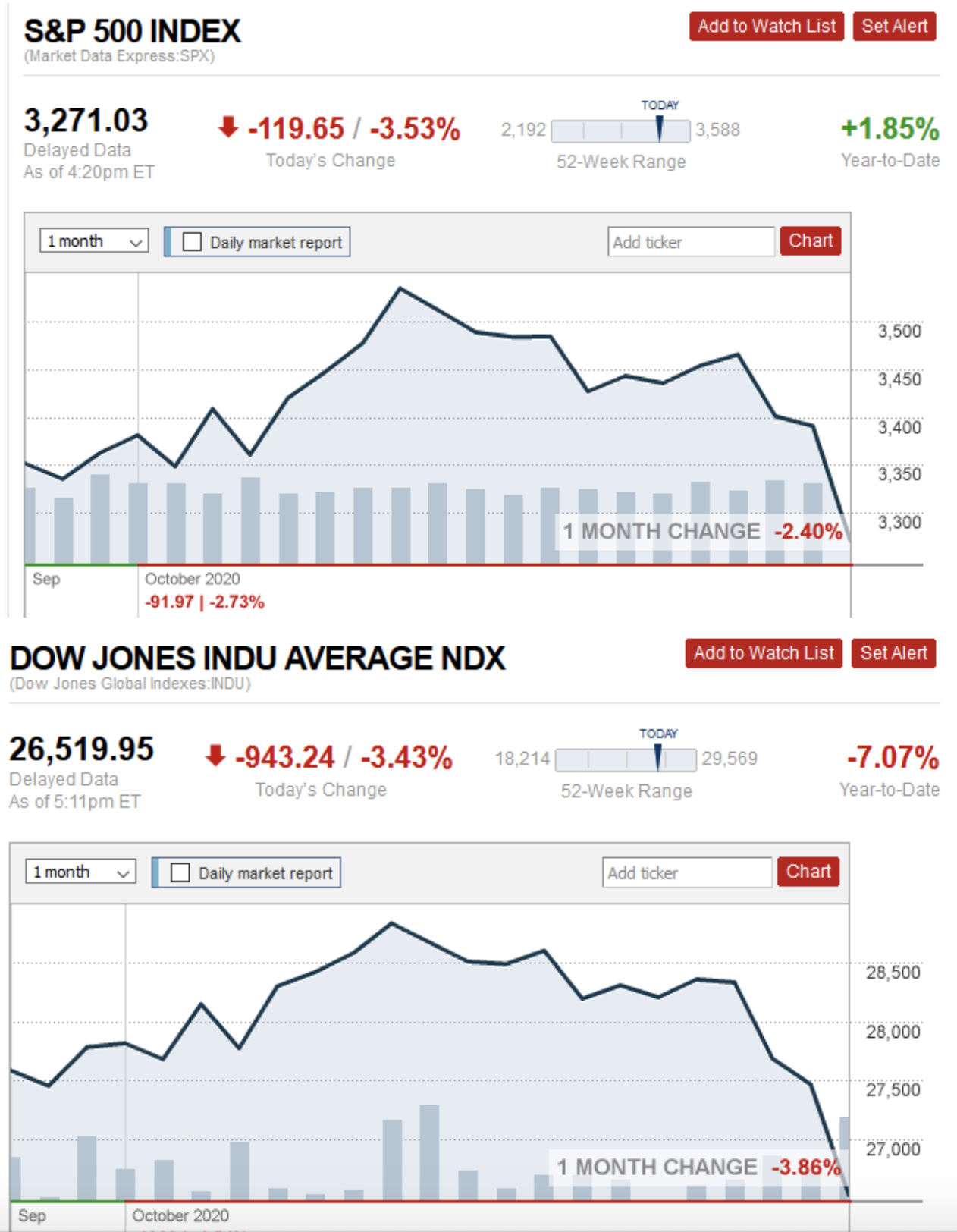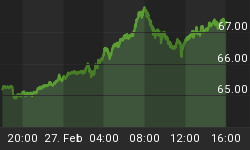Late last year, a cross-section of pundits predicted that 2020 would go down as one of the most volatile years in the history of financial markets mainly due to escalating trade wars. Turns out they were half-right. The current year really has been one of the most volatile on record not due to the feared trade tensions but a much deadlier foe: Covid-19.
The global pandemic was directly responsible for the epic stock market crash back in March--the fastest in history--and it could be about to do the markets in, again.
After a brief rebound on optimism that we had brought the pandemic under control, fear and volatility have returned to the stock markets with a vengeance thanks to the so-called second wave of Covid-19.
A commonly used volatility gauge, VIX, has surged 53% over the past 30 days while the market benchmark S&P 500 registered its biggest drop in a month on Monday. The S&P 500 has effectively given up three months’ worth of gains while the Dow Jones continues to sink deeper into negative territory in what is beginning to look like the making of yet another market crash.
CBOE Volatility Index (VIX)

Source: Business Insider

Source: CNN Money
Dashed stimulus hopes
The latest market downturn has been partially fueled by Frances and Germany’s consideration of new lockdown restrictions, a trend that could quickly spread to other countries.
A second wave of coronavirus infections has overwhelmed many European countries before the winter at a pace that has exceeded the most pessimistic projections. The new lockdown measures in France are reminiscent of the previous lockdown, requiring people to stay in their homes except when they need to buy essential goods, exercise for up to one hour a day or seek medical attention. Meanwhile, Germany will shut restaurants, bars and theatres from Nov. 2 till the end of the month. Schools in both countries though will remain open.
The timing of the second wave of coronavirus infections could not have been worse, with hopes for a quick government stimulus deal dashed while the U.S. elections is expected to inject another heavy dose of volatility.
Hopes of an imminent agreement for the US economy have been crushed after the Senate was suspended until after next week's election with little clarity regarding whether a deal can be sealed during the so-called "lame duck" period i.e. the period after the vote pending January's inauguration.
New York Times bestselling author and founder of 'The Bear Traps Report' Lawrence ‘Larry’ McDonald has warned of the ‘cobra effect’ whereby the stimuli designed to save the economy will instead ‘‘...cause a hyperinflationary economic collapse.’’Larry has sounded an eerie warning of signs of a “Lehman-like drawdown’’ developing in the markets and that “...we are at the early stage of the biggest cobra effect in the history of economics.”
The cobra effect that Larry is alluding to is the school of thinking that says that every human decision brings with it unintended consequences.
The markets have become too dependent on government largesse, but there’s only so much that governments can do.
However, some analysts are saying that Trump could actually be the better deal for the markets.
JPMorgan has declared that "an 'orderly' Trump victory as the most favorable outcome for equities," projecting that the S&P 500 could jump nearly 20% to 3,900 points if he is able to secure reelection.
On the other hand, JPM sees a sweep by Democrats as being "mostly neutral" for markets.
Healthcare, energy and financial sectors are likely to see the most outsized moves in either direction depending on which candidate carries the day.
By Alex Kimani for Safehaven.com
More Top Reads From Safehaven.com:
















